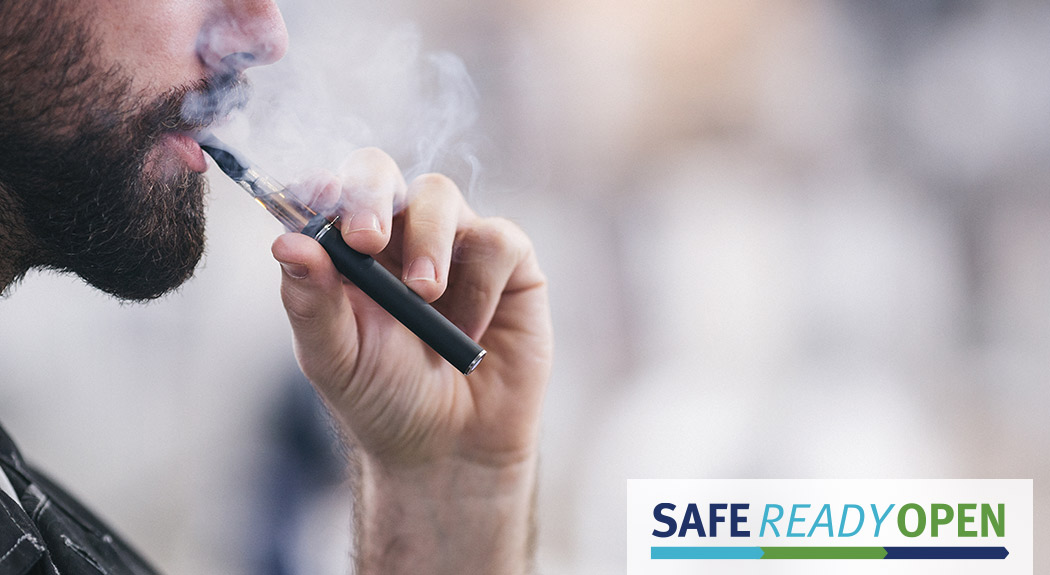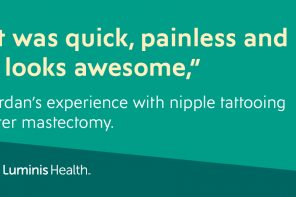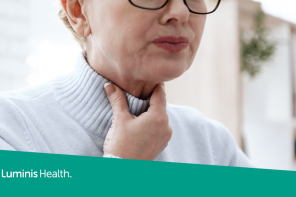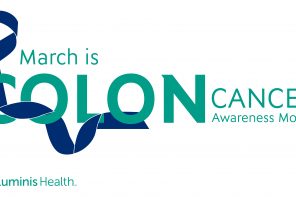Quitting smoking can be challenging under the best of circumstances. Add in the stress and isolation brought on by the COVID-19 pandemic and you compound that challenge. Research shows that smoking and vaping are harmful to lung health. They can also increase the risk of not only developing COVID-19, but impact the severity of the infection.
How does smoking or vaping increase my risk of getting COVID-19?
We know that smoking causes several respiratory diseases, including emphysema. Smoking also suppresses the immune system and reduces your body’s ability to fight infections. This makes you more susceptible to COVID-19.
Does smoking raise my risk of getting a severe case of COVID-19?
Smoking affects the ability of the lungs to function normally and do their job of providing fresh oxygen to your body. When you add a COVID-19 infection on top of that, this can lead to worse health outcomes.
Does vaping increase my risk of a COVID-19 infection?
According to the National Institutes of Health, people who smoke are two times more likely to get the flu than non-smokers. This may be true for COVID-19 infection as well.
Research is limited for COVID-19 infections caused by electronic cigarettes/vaping. A study by the Journal for Adolescent Health looked at more than 4,000 young people ages 13-24 who vaped. The study found that they were five times more likely to get COVID-19 than young people who didn’t vape. Youth who smoked cigarettes and vaped were seven times more likely to get a COVID-19 diagnoses, compared with those who didn’t use any form of tobacco.
How can I quit smoking or vaping?
Trying to quit during this time is possible. But it requires a plan. Your plan can include finding alternative ways to deal with triggers associated with smoking. Medications approved by the Food and Drug Administration for quitting nicotine are helpful in curbing smoking cravings.
How long does it take to see changes in my health after quitting tobacco use?
When you stop smoking, the healing starts almost immediately. Within the first 20 minutes, your blood pressure and pulse begin normalizing. Your lung function improves in one to three months. Make a list of all of the health benefits of quitting. Include all the important personal reasons you want to quit. This can keep you motivated. And don’t forget to reward yourself for each day you don’t smoke/vape!
Feel your best now by quitting tobacco. There are many resources to help you quit. They come in many forms – in-person, online or by telephone. To talk to a tobacco treatment specialist at Anne Arundel Medical Center’s Nicotine Dependence Program, call 443-481-5366.  Joanne Ebner is manager of the Cancer Prevention Department and Nicotine Dependence Program at Anne Arundel Medical Center. You can reach her office at 443-481-5366/67.
Joanne Ebner is manager of the Cancer Prevention Department and Nicotine Dependence Program at Anne Arundel Medical Center. You can reach her office at 443-481-5366/67.




